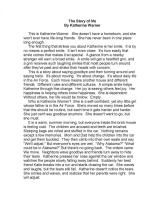What should I do to improve my writing skills?
Improving writing skills is a gradual process that involves practice, feedback, and a commitment to continuous learning. Here are some strategies to help you enhance your writing skills:
Read Regularly:
- Reading a variety of materials, including books, articles, essays, and well-written content, exposes you to different writing styles, vocabulary, and structures. Pay attention to how skilled writers express ideas and convey information.
Write Regularly:
- Practice is crucial for improvement. Set aside dedicated time for writing each day, whether it's journaling, blogging, or working on more formal pieces. The more you write, the more you develop your writing voice and style.
Set Clear Goals:
- Define specific writing goals, such as improving sentence structure, expanding vocabulary, or enhancing clarity. Break down larger goals into smaller, manageable tasks, and focus on one aspect at a time.
Expand Vocabulary:
- A rich vocabulary allows you to express ideas more precisely. Make a habit of learning new words and using them in your writing. Thesauruses and word-a-day apps can be helpful.
Seek Feedback:
- Share your writing with others, such as friends, peers, or writing groups, and ask for constructive feedback. Learning from others' perspectives can help you identify areas for improvement.
Edit and Revise:
- Editing is an essential part of the writing process. After completing a draft, take the time to review and revise your work. Look for ways to improve clarity, eliminate unnecessary words, and enhance overall structure.
Grammar and Style Guides:
- Familiarize yourself with grammar and style guides, such as The Elements of Style by Strunk and White or the Chicago Manual of Style. Understanding grammar rules and style conventions enhances the quality of your writing.
Take Writing Courses:
- Consider enrolling in writing courses, either online or in-person. Many platforms offer courses on creative writing, business writing, or academic writing. These courses often provide valuable insights and feedback from instructors.
Read Writing Guides:
- Explore books and guides on writing techniques and skills. There are numerous resources that offer tips on improving different aspects of writing, from plot development to effective communication.
Imitate Great Writers:
- Choose writers you admire and try to emulate their writing style. Analyze how they structure sentences, develop arguments, or create engaging narratives. This exercise can help you incorporate effective techniques into your own writing.
Use Writing Apps:
- Utilize writing tools and apps that provide grammar and style suggestions. Tools like Grammarly or ProWritingAid can assist in identifying and correcting common writing errors.
Join Writing Communities:
- Connect with other writers online or in person. Writing communities provide support, encouragement, and opportunities to learn from experienced writers.
Read Aloud:
- Reading your work aloud can help you identify awkward phrasing, repetitive patterns, and areas that may need improvement. It allows you to experience your writing from a different perspective.
Stay Consistent:
- Improvement comes with consistent effort. Make writing a regular part of your routine, and be patient with the learning process.
Remember that becoming a proficient writer is a journey, and continuous improvement is key. Embrace challenges, be open to feedback, and celebrate your progress along the way.
What are some practical steps to enhance writing abilities?
Enhancing your writing abilities involves a set of consistent practices and strategic approaches. Here are some practical steps you can take:
1. Read voraciously:
- Immerse yourself in diverse writing styles and genres. Pay attention to how authors structure sentences, paragraphs, and the overall flow of ideas.
- Analyze what makes a piece of writing engaging, informative, or persuasive. Identify patterns and techniques you can adapt to your own work.
- Read critically, questioning the writer's choices and considering alternative approaches. This strengthens your analytical skills and ability to refine your own writing.
2. Write regularly:
- Set aside dedicated time for writing, even if it's just for a short period each day. Consistency is key to building and maintaining writing momentum.
- Experiment with different writing forms like journaling, blogging, creative writing, or professional documents. This helps you discover your voice and develop diverse writing skills.
- Don't be afraid to write poorly at first. Embrace the process of writing, revising, and rewriting. The more you write, the more comfortable you'll become and the more your skills will improve.
3. Focus on clarity and conciseness:
- Strive to communicate your ideas in a clear and concise manner. Avoid unnecessarily complex language or jargon.
- Use active voice whenever possible to make your writing more engaging and direct.
- Cut unnecessary words and phrases. Aim for precision and efficiency in your word choice.
4. Improve your grammar and mechanics:
- Brush up on basic grammar and punctuation rules. Mistakes can distract readers and undermine the professionalism of your writing.
- Utilize online tools like Grammarly or Hemingway Editor to identify and correct errors in your writing.
- Don't rely solely on these tools. Develop a strong understanding of grammar and punctuation through practice and reference materials.
5. Seek feedback and actively revise:
- Share your writing with trusted friends, colleagues, or writing groups for constructive criticism.
- Be open to feedback and use it as an opportunity to learn and improve.
- Actively revise your work. Don't settle for the first draft. Polish your writing by refining sentence structure, flow, and overall clarity.
Additional Tips:
- Develop a vocabulary notebook: Jot down new words you encounter and actively incorporate them into your writing.
- Read your work aloud: This helps you catch awkward phrasing and identify areas for improvement.
- Challenge yourself: Try different writing prompts and exercises to push your boundaries and explore new creative avenues.
- Take advantage of resources: Online writing courses, workshops, and books can provide valuable guidance and inspiration.
Remember, enhancing your writing abilities is a continuous journey. Be patient, consistent, and embrace the learning process. With dedication and practice, you'll see significant improvements in your writing skills and confidence.
I hope these practical steps help you on your writing journey! Don't hesitate to ask if you have any further questions.













